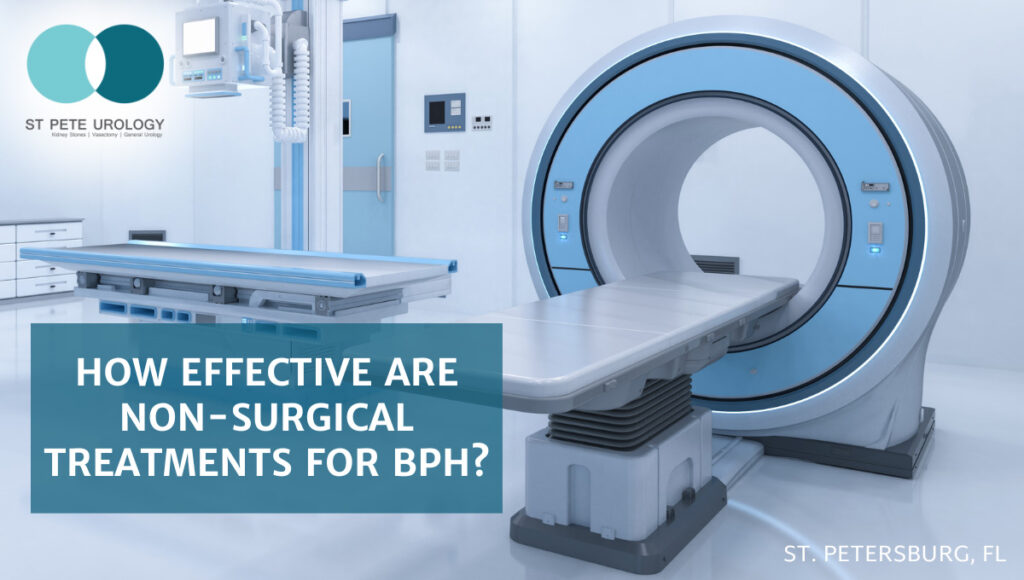Urinary incontinence in men is the unintentional or accidental loss of urine. In the United States, up to 17 percent of men may suffer from urinary incontinence, with the frequency of the condition increasing with age. Urinary incontinence is not a disease but just the symptom of an underlying condition, such as a prostate problem, injury to the urinary tract or a disease of the nerve system.
There are three major types of urinary incontinence in men:
- Stress incontinence: It is the leakage of urine that occurs when the pressure inside the bladder increases when doing things such as sneezing, coughing, climbing or lifting.
- Urge incontinence: This is the accidental loss of urine that occurs when the need to urinate is too strong and uncontrollable.
- Overflow incontinence: This is the unintentional loss of urine characterized by dribbling or leakage of urine in small quantities. It can happen even when you do not feel the urge to urinate.
Causes of Urinary Incontinence in Men
There is no standout factor among the causes of urinary incontinence in men. However, prostate gland problems and their treatment are often the most common causes of UI in older men. The prostate, which is normally the size of an almond, is found at the opening of the bladder. The principal role of the prostate is adding fluid to the semen during ejaculation. The problem with the prostate gland is that it tends to increase in size as a man grows older and extend to the point of impeding or slowing down the flow of urine from the bladder.
Other common causes of male urinary incontinence are muscle and nerve control problems. At the opening of the bladder is a muscle called the urinary sphincter, which controls the opening and closing of the bladder. Anything that affects the muscle or nerve function of the sphincter can result in urinary incontinence. The common underlying factors in urinary incontinence include:
- Benign Prostatic Hyperplasia (BPH): Most men experience prostatic enlargement after the age of 40. As the prostate grows bigger, it compresses the urethra and may impede the flow of urine, resulting in urinary incontinence.
- Prostate surgery: The surgical removal of the prostate gland during the treatment of prostate cancer or BPH can damage or weaken the muscles controlling urine flow, resulting in stress urinary incontinence.
- Urinary tract infections: The infections can cause an overactive bladder, which may be characterized by urinary incontinence
- Diabetes: Diabetes can cause damage to the nerves or muscles controlling how the bladder opens and closes. It also can cause frequent urination or an overactive bladder. Obesity, which is quite common in type II diabetes, can make urinary incontinence worse by exerting more pressure on the bladder.
- Stroke: Stroke refers to brain damage that is caused by decreased flow of blood to the brain because of a clot or a leaking blood vessel. When stroke occurs there may be loss of muscle control and decreased sensation, which may lead to urinary incontinence. Stroke also can make it difficult for a man to get up and walk to the bathroom, which also contributes to urinary incontinence.
- Neurological diseases: The two most common neurological diseases that may cause urinary incontinence are Parkinson’s disease and multiple sclerosis. The conditions make it difficult for nerve signals to be sent and received between the central nervous system(CNS) and the bladder, increasing the risk of urinary incontinence.
- Spinal injury: Nerve impulses transmitted between the brain and bladder usually come through the spine. Therefore, any severe injury to the spine can lead to urinary incontinence.
- Temporary causes of urinary incontinence: Temporary episodes of urinary incontinence may be caused by drinking too much alcohol or caffeine, constipation, or depression. Medications such as diuretics for treating high blood pressure, medications for depression and over-the-counter medications containing decongestants or antihistamines also can cause urinary incontinence.
When to see a doctor
If you experience urinary incontinence symptoms such as inability to control the urge to urinate, overflowing, or leaking urine under stress, then you need to talk to a urologist. At St Pete Urology, St Petersburg, Fl, we encourage men not to feel embarrassed by the symptoms of urinary incontinence and wait too long before seeing a doctor because the condition can get worse. We have established a multi-disciplinary and compassionate, patient-centric approach to treating urological disorders in order to encourage all men with the symptoms of UI to seek prompt treatment. So, if you are experiencing any UI symptoms, visit St Pete Urology as soon as you can because seeing a urologist early increases the likelihood that you will get an effective treatment that will help you find relief. For more information, visit the “St Pete Urology” site.




